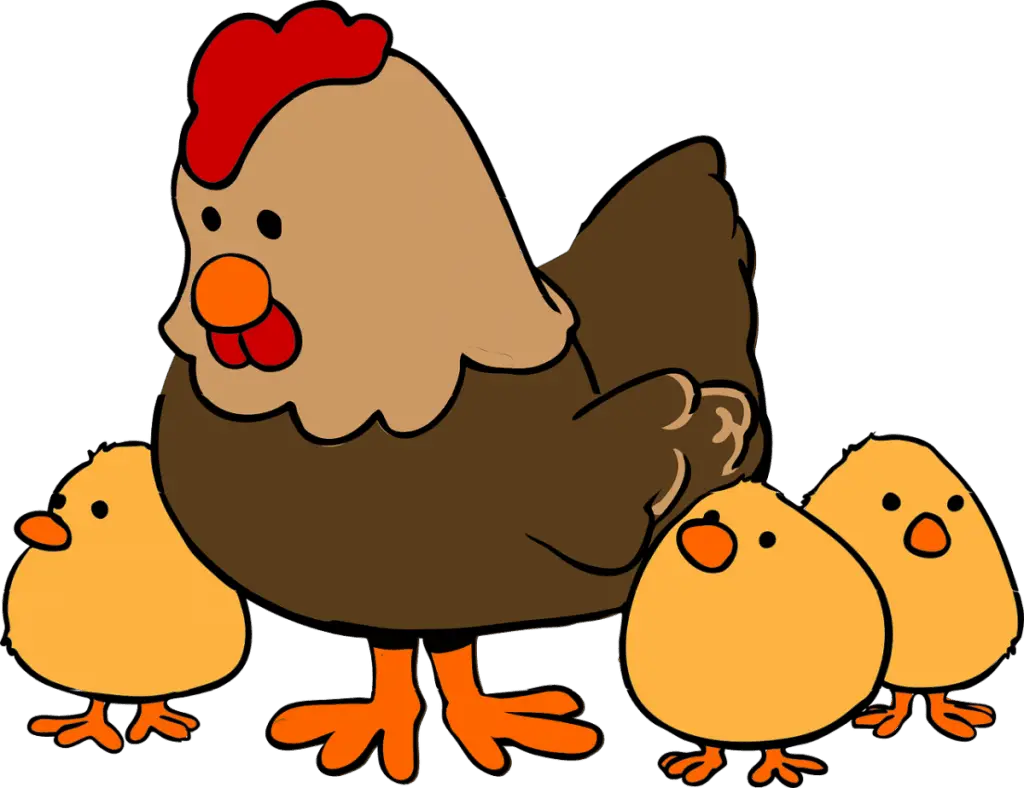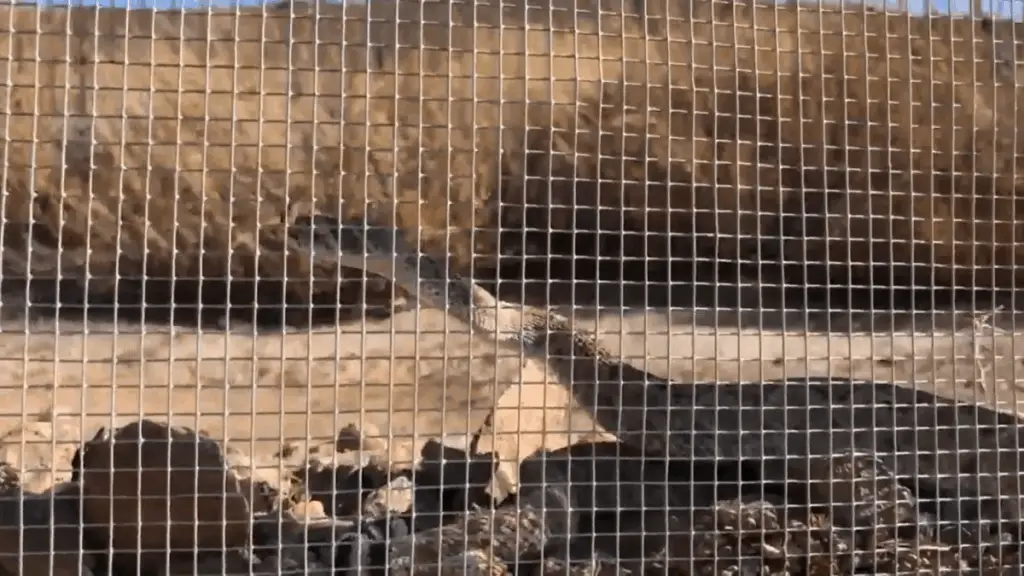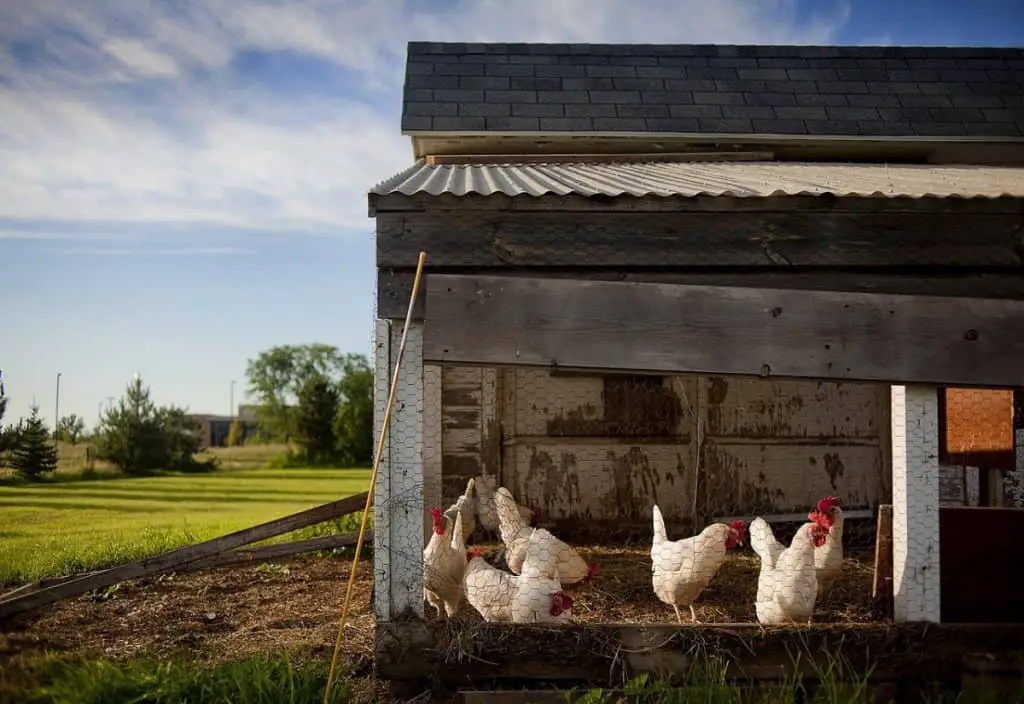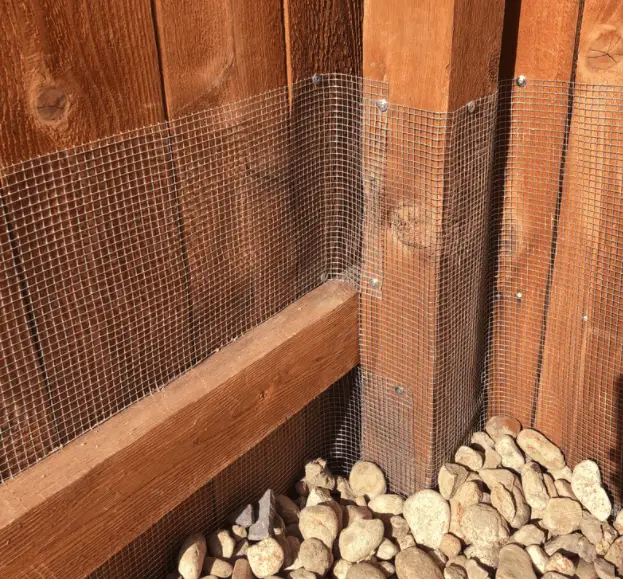No chicken owner is a fan of snakes. The coldblooded reptiles aren’t only scary and slithery, but they also kill chickens and feast on their eggs. If you don’t have proper protection for your coop, the snakes may spread a sense of fear among the chickens, and the eggs will be at risk.
So, how do I protect my chickens from snakes?

Luckily for you, there are multiple steps you can take to do so. In this article, we’ll discuss everything you can do to protect your chickens, and we’ll include some useful information about snakes and their behavior.
10 Ways to Protect Your Chickens (and Eggs) from Snakes
If you’ve noticed one or two chickens disappeared from your coup, it’s time to take some measures to protect the rest from the coldblooded, scaly reptiles.
Here are ten different ways you can do so.
Install a Snake Trap
If you’re not scared to deal with snakes, using a trap is an ideal solution to get rid of them. You can get glue traps, but no one likes to deal with a snake stuck to a piece of plastic. Instead, you can install a traditional minnow trap inside your coop.
If you’ve seen the snake somewhere else, you can put the trap there too.
For the lure-in, you can use an egg. If you don’t want to sacrifice one of your chicken eggs, you can use a fake one or a golf ball.
The snake will get in through the small hole and eat the egg. Afterward, it’ll find itself trapped, and it won’t be able to get out. You can then take the trap and dispose of the snake away from your home.
A lot of people prefer this solution because it doesn’t harm the snakes.
This is a long-time strategy of many small family farmers, particularly in areas heavy in snakes or that also have copperheads, which lets them relocate or deal with venomous snakes that they don’t want around when their kids are doing chores.
The snakes can be relocated, though in very rural areas there are farmer who choose to put trapped venomous snakes in a deep freezer to put them down since a bite on a child that far from any help could be fatal.
No judgement here – I’ve lived in the super rural areas. Not every situation is ideal and you have to make the practical most of a given situation.
A really good strategy was used by this farmer who figured out with a little bit of adjustment that cheap minnow traps could be shifted slightly to make for great traps by copperheads.
See the whole story (and pictures) right HERE.
Snake Fencing to Snake-Proof Your Coop
Snake-proofing your coop will keep your chickens safe from the venomous reptile. It should be an easy mission, especially for small coops.
All you have to do is install a 3-ft high fence without any holes or gaps that snakes can get in through.
You can install the fence yourself since it’s fairly easy. Just make sure you do it on level ground or a hard surface.

With a large enough snake there still is potential for crawling over, but this is a major deterrent to many snakes in the area, even if they could get over it.
Humans aren’t the only animals who often prefer the path of least resistance.
You’re worried about dangerous snakes and large snakes that can harm your chickens or eat their eggs, or both. Snake fencing, which is often referred to as rattlesnake fencing for obvious reasons (and is quite common in growing communities in states like Arizona).
Check HERE for pricing on one of the best and most reliable brands of snake fencing out there.
Close All Possible Openings
Snakes have thin bodies, and their gliding abilities enable them to get through any hole, no matter how small. That’s why you should close any opening the snakes may get through, including holes and cracks in the wall.
They can squeeze through any hole larger than a quarter an inch.
You have several solutions; you can use molding for the door gaps and hard cloth for the holes. Alternatively, you can use mesh or cement.
Stay away from chicken wires because they don’t offer much protection; some snakes will slip through them like they’re nothing. Not to mention, any other predator can easily break them apart.
Example of fencing that will NOT get it done:

You need the much smaller gapped snake fencing to reliably protect your chickens in the chicken coop.
Setting up that fencing should often be done even away from the coop. Sometimes having it further out makes sense – and two layers of snake fencing at two different points can help to make your chickens as secure as possible.
Like having some around the coop, and some further out like this, to secure an outer wooden fence first.

Make sure not to block the ventilation holes for the chickens’ sake; if you want to place hardware cloth on them, don’t use too much.
Cut Your Bushes and Grass
You won’t see a snake trying to get in the coup if it’s hiding in the bushes. Bear in mind that some snakes are too small to be seen, and their colors may help them camouflage against your grass.
You don’t need to make your mission more challenging by leaving the bushes big and grass tall. Regularly cut the bushes and mow the grass, so you leave no chance for the snakes.
If you have tree branches, you should prune them regularly as well because snakes are excellent at climbing. They may get into your coop from above.
Lastly, remove any wood twigs, rocks, or brush piles around. All of these can help the snake hide until it gets in the coop.
Control the Local Rodent Population
If snakes don’t find any food around, they won’t come, and their primary meal is rodents. If you have any mice or rats around, you should start working on getting rid of them so the snakes stay away, too.
Sealing up the holes around the coup will help prevent rodents from coming in. On top of that, you can set traps in their favorite places, but make sure your chickens won’t reach these traps.
The best time for setting them is at night, and you can collect them early in the morning before you take the chickens out.
Alternatively, you can cut their access to the chicken’s food by putting it away every night. You can also use a bucket feeder or a treble feeder for that purpose. That way, the rodents don’t find food and have no reason to get in.
Avoid poisoning the rodents because your chickens may eat them, causing them harm as well.
Nesting Box Locks
If you think your eggs are safe from the snakes, you’re wrong. Most snakes feed on eggs rather than chickens; if your box isn’t locked, you may find the eggs disappearing overnight.
If you can, get a nesting box with a lock latch because snakes can slip through the lid, even if the box is closed.
You should also try to collect eggs regularly to leave no chance for the snakes to feast on them.
Make a Coop Apron
A coop apron is an ideal solution to prevent animals from digging underneath, so the snakes can’t use the dug funnels. When the animals try digging near the coop, they’ll run into the apron, and it’ll compromise their mission.
All you’ll need is 24-inch fencing material. To make the apron, attach the fencing material to the coop’s bottom boards using staples. Make sure to keep the seams secure because some animals start digging from the corners.
To do so, you can use hog rings and a pair of pliers to attach the fencing at the overlapping intersections. You can get a full kit to save yourself the hassle of buying them separately.
Even when installing rattlesnake fencing, some of that fencing is generally set up underground in order to more fully cover and protect the chicken coop.
In fact, it’s not out of the question that these two techniques are going to be used in conjunction with one another.
Get an Ally
When you run out of solutions to deter the snakes, there’s nothing wrong with getting an ally. Your best bet is the cantankerous guinea fowl; snakes are absolutely terrified of the predatory bird.
If you manage to raise your guinea fowl well, it’ll get along with your chickens just fine, and you’ll have gained an ally to help with the snakes. Not to mention that they’ll clear your garden of any small mice and unwanted insects.
So, it’s a win-win situation.
If you don’t like the idea of a big bird running around your yard, you can always opt for the easier solution: adopt a cat. Cats don’t drive snakes away, but they’ll at least get rid of all the rodents, so the snakes won’t find food around.
Although cats can can in prey/predator mode with chickens so you’ll have train them or manage that to make sure you only get the behaviors you’re looking for.
Plant Vegetables Around the Coop
Snakes hate the smell of some vegetables, so they probably won’t stay for long around them, even if they bring no harm. These plants include garlic, onions, marigold, rosemary, lemongrass, and thyme.
You can plant them near your chicken coop; their strong odor will repel the snakes away if they get too near.
Some of these are wives’ tales and unproven, but there actually does seem to be some truth that some of these at the very least discourage many snakes from continuing on.
Case in point, see this crazy video testing a wall of peeled garlic vs a hungry snake on one side and mice on the other:
Bear in mind that snakes don’t smell from far away, though. So, the vegetables are only going to keep them away from the coop’s area. If you want to repel them further than that, you can go for any of the other steps.
Are Snakes Able to Feed on Full Chickens?
In North America generally this won’t be a problem. But it’s the chicks, small chickens, and eggs that you’re actually most concerned about.
Yes, snakes sometimes feed on full chickens, but only the big snakes can. Most of the time, they’re inside the coop for the eggs and chicks, not the chickens. Small snakes can’t swallow a whole chicken, but a copperhead or rattlesnake’s bite is fatal, so it’s an unfortunate incident in all cases.
That said, snakes don’t eat every day, so you won’t find a missing chicken daily. They can stay away for 1–5 weeks before they return for food again.
Which Snake Species Should I Be Afraid of?
While all snakes aren’t pleasant, some of them aren’t dangerous for chickens and eggs. The most common snakes in North America that appear in backyards are rat, king, milk, water, and corn snakes. None of them are poisonous to humans, so you can put your mind at ease.
Then again a big bull snake might not be venomous, but they are known for being nasty, temperamental, and big enough to cause serious damage to the eggs and chicken population of your coop. Not to mention a real nasty bite (speaking from summer youth experience).
Water snakes look like cottonmouth snakes, which are notorious water moccasins, known for being the only venomous water species in North America. Both species have the same white chin, but you can tell them apart by the water snake’s slender body, contrary to the cottonmouth’ heavy one.
Rat snakes, in particular, are called ‘chicken snakes’ because of their love of poultry. Additionally, they’re known for eating a lot of rodents.
They’re the most common snake in the US, too, so your coop isn’t safe from them. If you see one of those in your backyard, it’s better to start laying traps immediately.
How Do I Know There Has Been a Snake in My Coop?
There are a lot of things that signal the presence of a snake in your coop. For starters, you may notice some chicks are missing. If one of the flock disappears every few days, there’ll likely be a snake slithering around your coop.
If you’re noticing your chickens are laying fewer eggs than normal, that’s probably because the snake has been eating them before you arrive. The best you can do is track how many eggs each of your chickens lay and monitor them for disappearances.
One more thing to look out for is broken eggshells on the ground. Snakes regurgitate the crushed shells after pulling all the useful liquids and nutrients from therm.
If the snakes have been living in your coop long enough, you may see shed skins on the ground.
Are Snake Repellents Effective for Keeping Snakes Away?
Nope, absolutely not. And this isn’t about the type of snake repellant. As this great article asking Do solar snake repellents work? goes on to explain – none of them work.
It’s all snake oil. And the picture of a venomous snake cozily enjoying the shade under a pair of premium snake repellents really brings that point home.
These just straight up don’t work. I know “Scam” is a strong word…but it’s not out of line here, to be honest. And that opinion is based on a wide variety of real world situations.
Don’t even think about using snake repellents.
They don’t work. And that includes old stories like using mothballs (which are toxic to people and many animals when ingested).
How Can I Remove a Snake From My Property?
If you already caught a snake slithering around in your backyard or coop, you have no choice but to remove it. Don’t panic, though.
You can always get professional help and call the wildlife office in your region. They’ll send someone over to handle the snake.
If you haven’t dealt with snakes before, don’t attempt to do it. Doing so without training is a risky mission; the snake may attempt to bite.
Even those who are very experienced always use caution and will have the right tools like thick gloves, snake proof gaiters, a snake hook, and a solid bucket that can contain venomous snakes safely.
Your best bet is laying a trap, but traps are more convenient if you can’t find the snake. If you’re already seeing it, there’ll be no need.
Why Do Snakes Get Into Chicken Coops?
Most people think the snakes are getting into the coops for the chicken only. However, they come looking for any kind of food, such as rodents.
Most snakes that come to backyards are too small to eat adult chickens. They’ll instead feed on insects, frogs, slugs, minnows, worms, tadpoles, and eggs.
Some small snakes are even too small to eat eggs, so they slither around to find insects and similar food. Chickens usually target these snakes, and they find themselves being prey despite their predatory nature.
Larger snake species mostly live in rainforests, and they don’t pay visits to backyards or small coops.
Frequently Asked Questions
Here are some frequently asked questions about snakes and their chicken-eating behaviors. If you’re still confused about anything, the answers may clear it out.
Are Sticky Traps efficient?
Sticky traps are efficient, but they’re inconvenient for many reasons. For starters, they won’t just trap snakes; they’ll trap all sorts of insects and non-target animals, and they’ll cause a slow death for any animal that sticks.
Not only that, but dealing with a snake stuck on a piece of plastic isn’t ideal, either. You won’t be able to pull it free, and killing it isn’t a pleasant task.
In addition to that, sticky traps look unpleasant after a while because they catch dirt from the air. You don’t want to be looking at something like that in your backyard. It’s better to ditch sticky traps, especially that there are several other options.
Do Mothballs Work for Keeping Snakes Away?
Most of the time, they don’t work. The active ingredients in these balls are paradichlorobenzene and naphthalene, which are toxic for mammals and insects, but not for snakes.
Besides, they’re not safe to keep in your coop because the chickens may eat them and get sick. Even worse, your pet cat or dog may get tricked into thinking they’re food.
Not to mention, the use of mothballs outdoors is illegal in some states because they’re pesticides.
Can’t Chickens Kill Snakes Themselves?
Only the extremely small ones that never posed a threat to chicken, chicks, or eggs. Or in other words, only the snakes that you have no concern over anyway.
Well, no one would have bothered to protect their coop if chickens can kill snakes. They may be able to kill small ones by swallowing them whole, but they won’t do much to a big snake. Besides, snakes that are too small to be eaten by chickens probably won’t get in the coop in the first place.
Can I Put Golf Balls to Trick the Snakes?
You can, but don’t get your hopes up. While some snakes may get tricked, the majority won’t. Snakes have an impeccable sense of smell; they’ll instantly realize it’s not a real egg.
Besides, they can regurgitate anything easily, so they may vomit the golf ball back up when they realize it’s not a real egg. Assuming you found the one incredibly dumb snake that went for the golf ball versus an egg.
This is one of those stories that it feels like someone came up with and it took off because it “made sense” in a Wives’ Tale sort of way.
But no this is not a realistic way to deal with it.
Conclusion
Snakes are a nuisance to deal with, but they’re easy to prevent once you know how to. As long as your coop is well-designed with a fence, an apron, and no holes, the snakes hopefully won’t get in.
When laying traps, remember to keep them out of the chickens’ reach to avoid unfortunate incidents. A little bit of prevention and a few good traps can really help give your chickens the best chance of thriving and keep the snakes moving on, hungry and disappointed.
